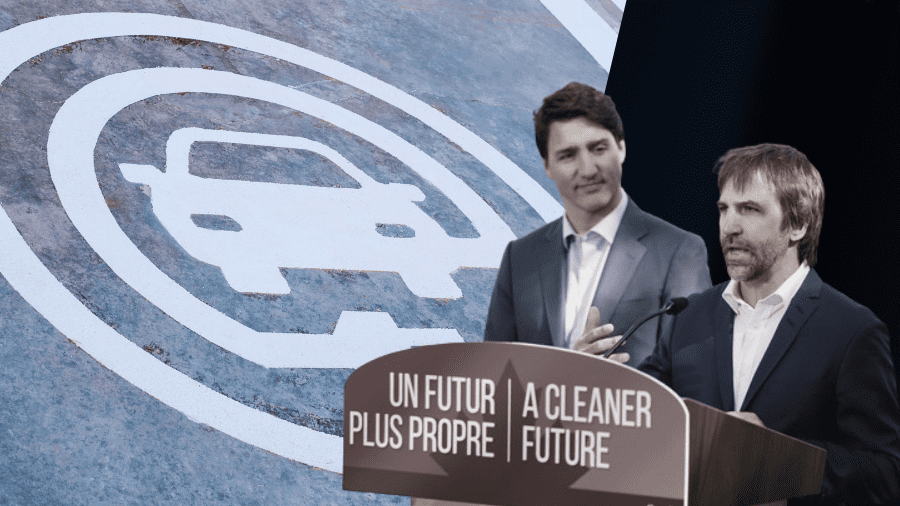Auto Dealers Fight Back Against Electric Vehicle Mandates

Table of Contents
Financial Concerns and Infrastructure Limitations
The transition to selling and servicing EVs presents substantial financial challenges for dealerships. The high initial investment costs, coupled with concerns about consumer demand and insufficient government support, are creating significant anxieties within the industry.
High Initial Investment Costs
Adapting to the EV market requires a considerable upfront investment. Dealerships face the burden of significant capital expenditure to make the necessary changes.
- High cost of installing EV chargers: Installing Level 2 and DC fast chargers requires substantial investment, especially for dealerships with limited space or older infrastructure. The costs associated with electrical upgrades, installation, and ongoing maintenance are significant.
- Need for specialized technician training: Servicing EVs requires specialized training and tools, different from those used for internal combustion engine (ICE) vehicles. Retraining existing mechanics and hiring qualified EV technicians adds to the financial burden.
- Increased inventory holding costs: EVs often sell at a slower rate than ICE vehicles, particularly in regions with lower EV adoption rates. This leads to increased inventory holding costs and potential for losses due to obsolescence.
Lack of Consumer Demand in Certain Markets
Consumer demand for EVs is not uniform across all markets. Many regions, particularly rural areas or those with lower average incomes, exhibit significantly lower EV adoption rates. This uneven demand creates challenges for dealerships.
- Geographical disparities in EV adoption rates: Dealerships in areas with low EV adoption face the risk of unsold inventory and reduced profitability. Investment in EV infrastructure in these areas might not yield a quick return on investment.
- Challenges in marketing EVs to skeptical consumers: Overcoming consumer hesitancy towards EVs, particularly concerns about range anxiety and charging infrastructure availability, requires significant marketing investment.
- Impact of range anxiety and charging infrastructure limitations on consumer demand: Limited charging infrastructure and concerns about driving range significantly impact consumer confidence and willingness to purchase EVs.
Insufficient Government Support
While governments are pushing for EV adoption, many argue that the support provided to dealerships is inadequate to offset the costs of transitioning to EV sales.
- Inadequate funding for charger installation: Government grants and subsidies for charger installation are often insufficient to cover the total cost, leaving dealerships to shoulder a significant portion of the expense.
- Insufficient incentives for consumers to purchase EVs: While some government incentives exist, many argue that they are not substantial enough to significantly boost EV sales in areas with low consumer demand.
- Lack of clear long-term government policy on EV adoption: Uncertainty around future government regulations and policies on EV adoption makes it difficult for dealerships to plan long-term investments and strategies.
Logistical Challenges and Training Requirements
Beyond financial concerns, dealerships face numerous logistical hurdles in adapting to the EV market. These challenges include specialized training needs, inventory management difficulties, and the uneven development of charging infrastructure.
Specialized Training and Technician Shortages
The shift to EVs requires a skilled workforce capable of servicing these complex vehicles. However, a shortage of qualified EV technicians is hindering the transition.
- Need for retraining existing staff: Dealerships need to invest in retraining their existing mechanics to work on EVs, a process that requires time and resources.
- Difficulty in recruiting and retaining specialized EV technicians: The demand for qualified EV technicians exceeds the supply, making it difficult for dealerships to attract and retain skilled personnel.
- Increased training costs: The cost of training programs for EV technicians, coupled with the potential loss of productivity during training, adds to the overall logistical challenges.
Inventory Management and Supply Chain Issues
Managing EV inventory presents unique challenges, exacerbated by supply chain disruptions and potential for technological obsolescence.
- Uncertainty in EV demand forecasting: Predicting future EV demand is challenging, making it difficult for dealerships to optimize their inventory levels and avoid excessive stock or shortages.
- Difficulties in securing timely delivery of EV models: Supply chain disruptions can lead to delays in receiving EV models, impacting sales and customer satisfaction.
- Potential for rapid technological advancements to render existing inventory obsolete: Rapid technological advancements in the EV sector can quickly render existing inventory obsolete, leading to potential financial losses for dealerships.
Charging Infrastructure Development
The uneven development of EV charging infrastructure poses a significant obstacle for dealerships in selling and servicing EVs.
- Uneven distribution of charging stations across regions: The lack of sufficient charging infrastructure in many areas hinders consumer confidence and limits the potential market for EVs.
- Lack of standardization in charging technologies: The lack of standardization in charging technologies adds complexity to the charging infrastructure and increases the costs associated with installing and maintaining chargers.
- Concerns about the reliability and availability of charging stations: Concerns about the reliability and availability of charging stations further contribute to consumer hesitancy and range anxiety.
Dealership Associations' Role and Advocacy Efforts
Facing these challenges, dealership associations are actively working to address the concerns of their members and influence policy decisions.
Lobbying and Political Action
Dealership associations are engaged in significant lobbying efforts to influence legislation related to EV mandates.
- Efforts to influence legislation: Associations are working to advocate for modifications to stringent EV mandates, seeking a more gradual transition to allow dealerships to adapt.
- Advocating for phased-in mandates: Many associations propose a phased approach to EV mandates, allowing dealerships time to adjust their infrastructure, training, and inventory strategies.
- Seeking greater government support for dealership transitions: Dealerships are actively lobbying for increased government support, including financial incentives, subsidies, and assistance with infrastructure development.
Public Relations and Consumer Education
Dealership associations are also engaged in shaping public perception of EV mandates and educating consumers about the challenges involved.
- Public awareness campaigns: Associations are running campaigns to educate the public about the challenges faced by dealerships in adapting to EV mandates.
- Highlighting challenges in EV adoption: These campaigns emphasize the complexities of transitioning to an EV-centric market, advocating for a balanced approach.
- Emphasizing the importance of a balanced approach to automotive transitions: Dealerships advocate for policies that consider both environmental sustainability and the economic viability of the auto industry.
Conclusion
The opposition of auto dealers to EV mandates stems from a confluence of factors: significant financial concerns, substantial logistical challenges, and the need for greater government support. The rapid shift towards electric vehicles presents substantial hurdles for dealerships, requiring substantial investment, specialized training, and adaptation to evolving consumer demand and infrastructure limitations. Dealership associations are actively engaged in lobbying efforts and public awareness campaigns to advocate for a more balanced approach to EV adoption. Finding a balance between environmental sustainability and the economic viability of the auto dealer industry is crucial. A collaborative approach that addresses the concerns of auto dealers while promoting electric vehicle adoption is essential to navigate the future of transportation effectively. Let's find a solution that works for everyone, mitigating the impact of electric vehicle mandates on auto dealerships and ensuring a smooth transition to a sustainable automotive future.

Featured Posts
-
 Lotto 6aus49 Gewinnzahlen Und Quoten Vom Mittwoch 9 April 2025
May 08, 2025
Lotto 6aus49 Gewinnzahlen Und Quoten Vom Mittwoch 9 April 2025
May 08, 2025 -
 Rogues Legacy Gambits Devastating New Weapon
May 08, 2025
Rogues Legacy Gambits Devastating New Weapon
May 08, 2025 -
 Saving Private Ryan 20 Facts You Probably Didnt Know
May 08, 2025
Saving Private Ryan 20 Facts You Probably Didnt Know
May 08, 2025 -
 Stephen King Praises New The Life Of Chuck Movie Trailer Released
May 08, 2025
Stephen King Praises New The Life Of Chuck Movie Trailer Released
May 08, 2025 -
 The Best War Movie Fans React To Saving Private Ryans Potential Demise
May 08, 2025
The Best War Movie Fans React To Saving Private Ryans Potential Demise
May 08, 2025
